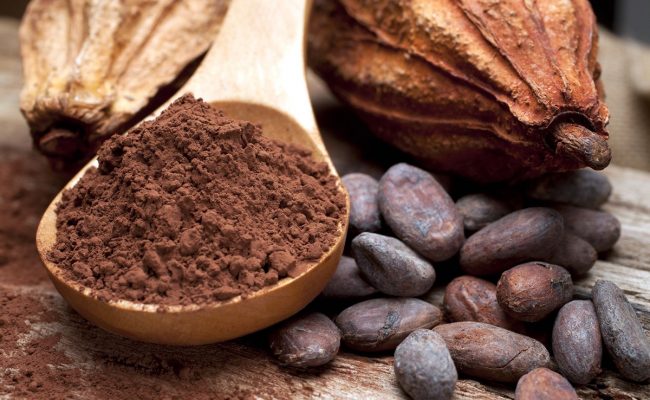
Americans are estimated to spend over $18 billion on chocolate in 2015. While this is a lot of chocolate, Switzerland comes in as the leading chocolate consuming country for 2015; the average person is estimated to consume about 9kg of chocolate throughout the year. Is eating all this chocolate good for you?
The source of chocolate, cocoa beans, are naturally high in antioxidants, polyphenols and some minerals. Dark chocolate will have a higher amount of polyphenols in it and is usually considered the healthiest type of chocolate.
Milk and white chocolates are higher in sugar, dairy and lower in antioxidant amount.
There is some research to suggest eating chocolate every day can provide health benefits, but the quantity and type of chocolate should be considered.
Dilates blood vessels
Plant compounds called flavonoids found in dark chocolate have been shown to act as vasodilators.
This could be very important for heart health because when arteries become narrow and lose their flexibility to dilate, that increases risk for heart disease. Arteries can also get hard with plaque and do not expand and contract like they should.
Some medications help to dilate arteries to increase blood flow. Flavonoids like those found in dark chocolate act as natural dilators for arteries, even hours after eating.
A 2007 study (1) gave 40 grams of 70% dark chocolate or a cocoa free control chocolate to heart transplant recipients. Researchers measured coronary artery diameters two hours after eating either chocolate.
Researchers found coronary artery dilation was increased significantly after eating the regular dark chocolate but was not with the cocoa less chocolate. Platelet adhesion was also significantly lower in the arteries of the dark chocolate group.
May help lower blood pressure
Flavonoids in chocolate could also help lower blood pressure. A 2012 review article (2) analyzed data from 20 studies looking at flavonoids in chocolate and blood pressure.
Researchers concluded flavonoid rich chocolate, like dark chocolate, can have a small but significant impact on helping to lower blood pressure in short term studies lasting a few weeks.
More research is needed to determine if this effect would be seen with chronic daily consumption.
Anti-inflammatory
A 2008 study (3) found that daily consumption of a quarter ounce of dark chocolate helped lower an inflammatory marker in the blood.
Many diseases, like cardiovascular disease, are promoted by inflammation, so eating foods that are anti-inflammatory can be beneficial for many reasons. Dark chocolate with high amounts of flavonoids can be a rich source of antioxidants.
Flavonoids in dark chocolate may help protect LDL cholesterol from getting oxidized. Oxidized LDL cholesterol is considered more harmful and damaging to blood vessels, so it’s ideal to keep oxidized LDL levels low.
A small study (4) concluded that the antioxidants in cocoa powder helped protect LDL cholesterol from becoming oxidized in research participants.
Lower BMI
Could eating chocolate every day actually help keep your weight down?
According to one research study (5), researchers found people who consumed chocolate more frequently had a lower BMI than people who consumed chocolate less frequently.
Researchers looked at food intake from more than 900 volunteers and found people with higher chocolate intake had lower BMI even though frequent chocolate eaters had an average higher daily calorie intake.
Even when activity level was adjusted for, frequent chocolate eaters still showed to have lower BMI.
Researchers suggest that this data coincides with other studies finding a benefit from chocolate on heart health, insulin sensitivity and even lowering all-cause mortality.
How can chocolate potentially help lower BMI?
Researchers are not exactly sure, but some rat studies have shown that certain compounds in chocolate can help increase mitochondria (needed for burning fat) and were beneficial for lean muscle mass.
More research is needed in long term studies with humans to understand more the relationship chocolate could have on weight. Before you start eating all things chocolate to lose weight, heed the guidance of keeping your chocolate intake to the recommended serving size per day.
Keep in mind too that dark chocolate has the highest amounts of flavonoids and is generally considered the healthiest.
How much and what kind of chocolate should you eat?
According to Cleveland Clinic (6), most studies that show a health benefit of eating chocolate use a dose of 1.5- 3 ounces per serving.
Some studies do show a benefit of daily consumption of chocolate, but an exact suggestion of chocolate intake for health benefits still needs clarification. Is it daily, every other day or weekly that has the best payoff for health benefit?
Since dark chocolate has the highest levels of antioxidants, they get the gold star for health benefits. Milk chocolate has zero or a very low amount of antioxidants and is higher in sugar. White chocolate really has no health benefit, as it doesn’t have any part of the cocoa bean in it.
If you enjoy eating chocolate, try to eat mostly dark chocolate. A general rule of thumb is the higher cocoa content, the greater the potential health benefit.
See also: 10 healthy alternatives to chocolate under 100 calories
Use dark chocolate as a healthy substitute for other sweets. Eat a small piece of dark chocolate instead of reaching for other sweets that you would normally reach for. Keep in mind a small amount of dark chocolate can go a long way in terms of satisfaction.
Conclusion
Antioxidants or flavonoids in dark chocolate have been shown to have heart health benefits. They may help lower blood pressure, increase vasodilation and can protect LDL cholesterol from being oxidized.
Despite being high in calories and higher in saturated fat, frequently eating chocolate has been shown to be related to lower BMI levels.
This study outcome may warrant daily consumption of chocolate as long as it’s in the recommended serving size and is dark chocolate.
More research is needed though on exact guidelines for daily consumption, but research so far suggests daily intake of dark chocolate could have some health benefits if it’s part of a healthy diet.










